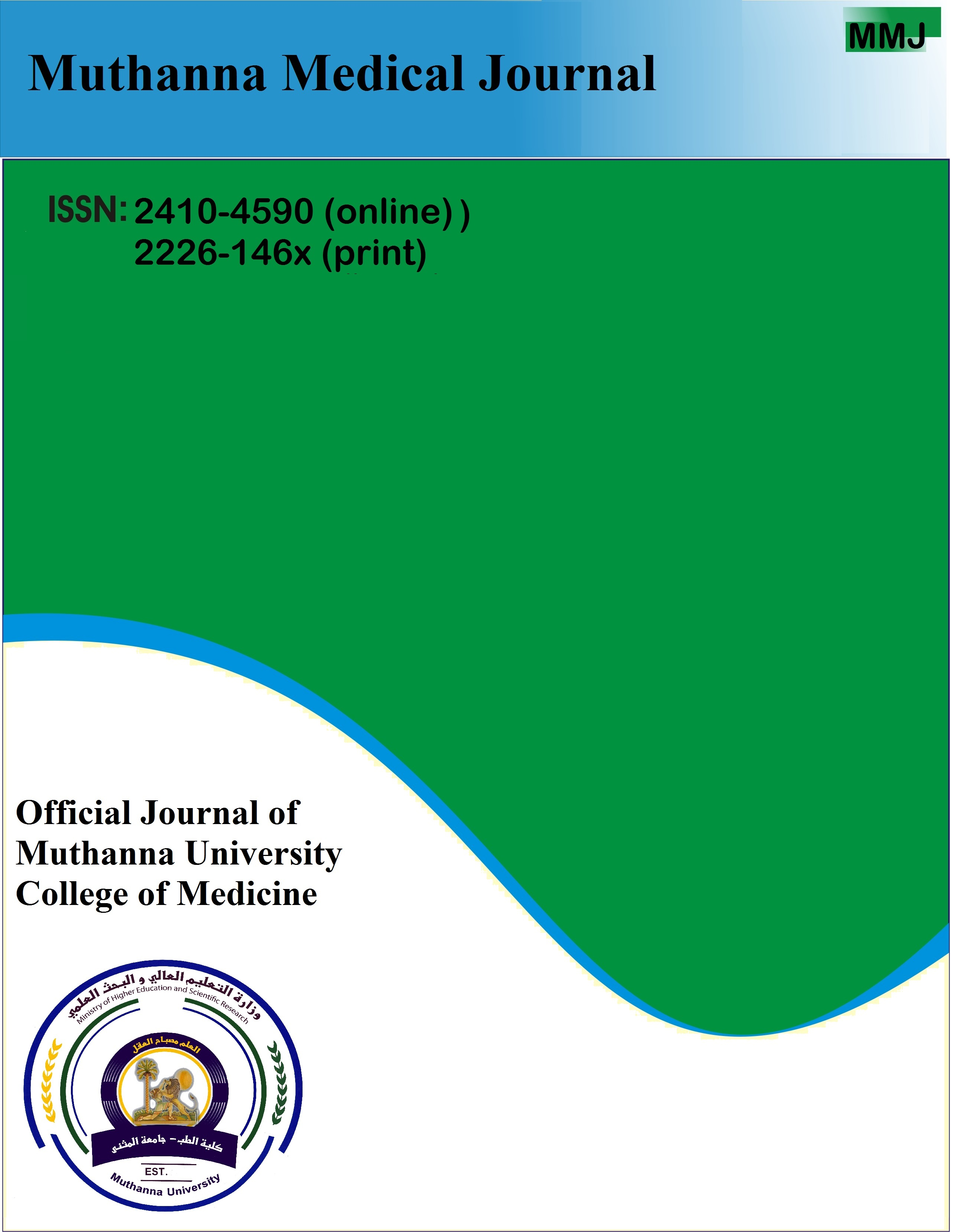Muthanna Medical Journal
Volume 9, Issue 2, 2022 Page 121-131
http://dx.doi.org/10.52113/1/1/2022-121-131
Noor Mohammed Obaid ¹*, Zinah Abd Ulelah Abd Ali ¹, Mahmood Shakir Al-Zaidi ²
Correspondence author: ph.nno.na.na@gmail.com
¹ Department of Chemistry and Biochemistry, Al Nahrain University, College of Medicine
² Department of Medicine, Al Nahrain University, College of Medicine
Received 09 August 2022, Accepted 04 October 2022, Available online 12 October 2022.
Copyright © 2022 NO. This is article distributed under the terms of the Creative Commons Attribution License http://creativecommons.org/licenses/by/4.0), which permits unrestricted use, distribution, and reproduction in any medium, provided the original work is properly cited.
Abstract
Diabetes mellitus (DM) is a group of diseases characterized by high blood glucose levels resulting from a defect in the body’s ability to produce and/or use insulin. It is believed that oxidative stress plays important role in the development of vascular complications in type 2 diabetes. The objectives: to determine the serum concentrations of endogenous melatonin and glutathione peroxidase (GPx) in cases of Type 2 DM and compare it with normal controls and to assess the correlation between melatonin and GPx. A case control study was done on 70 patients with diabetes mellitus type 2 according to ADA definition of DM type 2 recruited from Al Imamain Al-Kathemeaain medical city, Baghdad, Iraq who compared with 70 age, BMI and gender matched healthy control group in the levels of serum melatonin, serum glutathione peroxidase (GPx), fasting blood glucose (FBG) level, glycated hemoglobin (HbA1c), lipid profile, serum urea and serum creatinine. The activities of GPX enzyme (5.3021±1.2098) were significantly (p=0.037) lower than those of controls (6.6185±2.06877) which is accompanied with a significant reduction in the melatonin levels in patients (13.7652±2.75756) comparing with controls (17.3398±2.80153) with a significant positive correlation between GPX activity and melatonin levels in both patients and control groups. Inconclusions; melatonin levels showed to be reduced significantly in diabetic patient which may play an essential role in reducing the defense mechanism against ROS via affecting the activity of GPx enzyme.
Keywords: Diabetes mellitus, glutathione peroxidase, Melatonin, Oxidative stress, Reactive oxygen species (ROS)